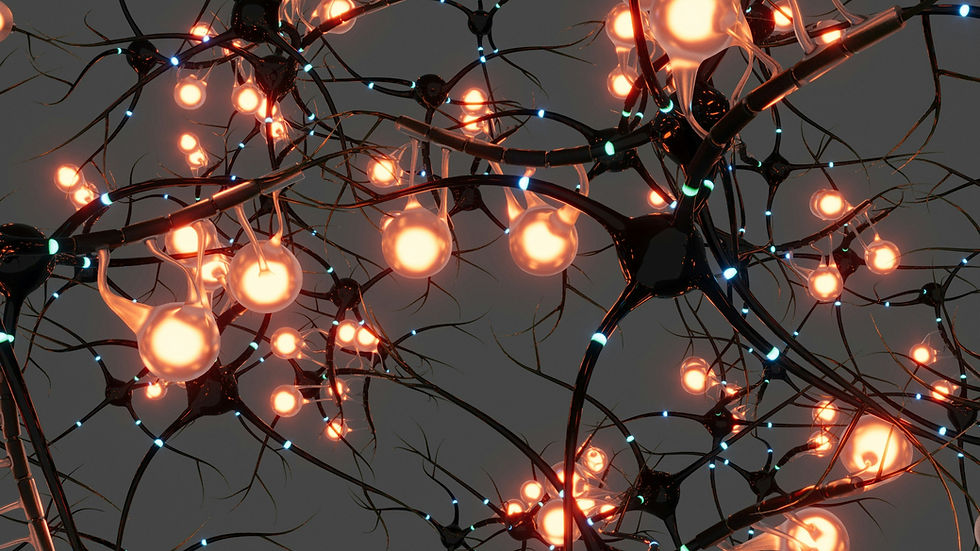How AI Is Reshaping Women’s Healthcare and Closing the Gender Gap
- The Female Body

- Apr 17, 2025
- 3 min read

From smarter diagnoses to inclusive research, artificial intelligence is driving a revolution in women’s health.
For far too long, women’s health has been sidelined—under-researched, underfunded, and misunderstood. But artificial intelligence (AI) is beginning to rewrite that narrative. When designed ethically and deployed responsibly, AI has the potential to transform women’s healthcare—offering earlier detection, more accurate diagnoses, and treatments tailored to women’s unique biology.
A Broken System Meets New Tech
Historically, women were excluded from clinical trials, and medicine was tested on male bodies as the default. The result? Women today still experience up to 75% more adverse drug reactions due to male-centric dosing and protocols. AI is helping correct this.
From decoding massive datasets to personalising treatment based on real biological differences, AI is reshaping how we understand and deliver care to women. And it’s about time.
The Swedish Mammography Study: AI in Action
One powerful example is the Swedish Mammography Study, where AI-assisted screenings increased breast cancer detection rates by 20%—identifying 244 cases, compared to 203 found by radiologists alone. That’s not just data; that’s potentially 41 women’s lives changed by earlier intervention.
Even more critically, AI helped reduce false positives—meaning fewer women were subjected to unnecessary biopsies and anxiety-inducing follow-up tests. AI in this context is not replacing radiologists but acting as a powerful second set of eyes, accelerating screening and sharpening diagnostic precision.
And women trust it. In follow-up interviews, most participants said they supported AI-assisted mammography. They saw AI not as a replacement for doctors, but a tool to make them even more effective. Many were willing to accept more callbacks if it meant a better chance of catching cancer early—because informed women want accuracy, not perfection.
Bridging Gaps with Data: The All of Us Research Program
Another game-changer is the All of Us Research Program, led by the NIH. With over a million participants—including a strong focus on women and underserved communities—it’s building one of the world’s most inclusive biomedical databases.
AI is used to analyse this rich trove of information to identify gender-specific risk factors for heart disease, autoimmune conditions, reproductive disorders, and more. For women who’ve been misdiagnosed or dismissed for years, this isn’t just research—it’s radical reparations.
Imagine medications developed with female metabolism, hormone cycles, and reproductive stages in mind. AI-assisted drug development and predictive diagnostics could finally move us beyond the dangerous one-size-fits-men approach to medicine.
But Let’s Be Clear: AI Isn’t a Silver Bullet
Despite its promise, AI isn’t free from problems. Bias is a real threat. If algorithms are trained on male-dominated data—as many currently are—they risk reinforcing inequalities rather than fixing them. That’s why inclusive, diverse datasets are essential from the outset.
Data privacy is another pressing concern. AI requires vast amounts of personal health information—so strong protections, patient consent, and ethical safeguards are non-negotiable. Women must know how their data is being used and have the power to opt in—or out.
Most importantly, AI should never replace human care. From reproductive decisions to mental health, healthcare must always centre emotional intelligence, empathy, and ethical oversight. AI is a tool—not a decision-maker.
What Real Progress Looks Like
The future of AI in women’s healthcare depends on how we choose to build and use it.
It must be:
Ethical: rooted in fairness, transparency, and consent.
Inclusive: trained on data that reflects women from all backgrounds.
Supportive: designed to work with clinicians, not replace them.
Transparent: so patients can understand and trust the technology.
The potential is powerful. But so is the risk—if we don’t get it right.
A Revolution We Can't Afford to Miss
When done well, AI can correct historic injustices in women’s healthcare. It can bring us closer to early diagnoses, fewer missteps, and a medical system that finally treats women as equal, complex beings—not afterthoughts.
But it won’t happen by accident.
We must demand that AI serves all women—across races, ages, abilities, and income levels. Because anything less just replicates the bias we’re trying to dismantle.




Comments